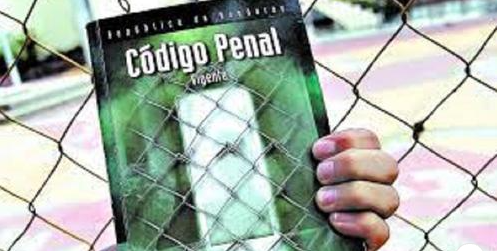
On October 8, PBI-Honduras posted: “We express concern about the increase in penalties for the crimes of usurpation and forced displacement in the Penal Code yesterday in the session of the National Congress. Social organizations denounce the improper use of these crimes to criminalize defenders of human rights.”
PBI-Honduras adds: “The penalties for both crimes [usurpation and forcible displacement] have been raised from 4 to 6 years and from 6 years to 9 years respectively.”
Former UN Special Rapporteur Victoria Tauli-Corpuz has given the example of “usurpation” as when “Indigenous peoples become trespassers or illegal occupants of their own lands.”
The National Network of Women Human Rights Defenders in Honduras further notes that the charges of “usurpation” and “forced displacement” are “used to criminalize and prosecute actions of social protest and demands for the rights of organizations that defend human rights. human rights, articulated in peasant organizations, indigenous peoples, blacks and social movements.”
And Paso de Animal Grande explains:
“The new Penal Code was tested by legislative decree 130-2017, harshly questioned by the national and international community for violating international human rights standards.
It came into force in June 2020 despite massive opposition from Honduran society and international organizations that warned of dire consequences.
The crime of usurpation aimed at criminalizing the defense of the land and contemplated a penalty of two to four years, but with the reform of this October 7, it was increased from four to six years.
The deputy Luís Redondo and the congresswoman Doris Gutiérrez, denounced irregularities among which they mention the criminalization of the right to land to favor the Special Economic Development Zones, ZEDE, whose partners are advancing by leaps and bounds to deprive their territories to settlers from where they have settled.”
Additionally, the Office of the United Nations High Commissioner for Human Rights (OHCHR) suggested that these reforms be subject to a debate with all sectors and reflect on possible consequences in the context of the electoral process facing the country.
The general elections will be held in Honduras on November 28 to elect the President, members of the National Congress and 20 members of the Central American Parliament.



